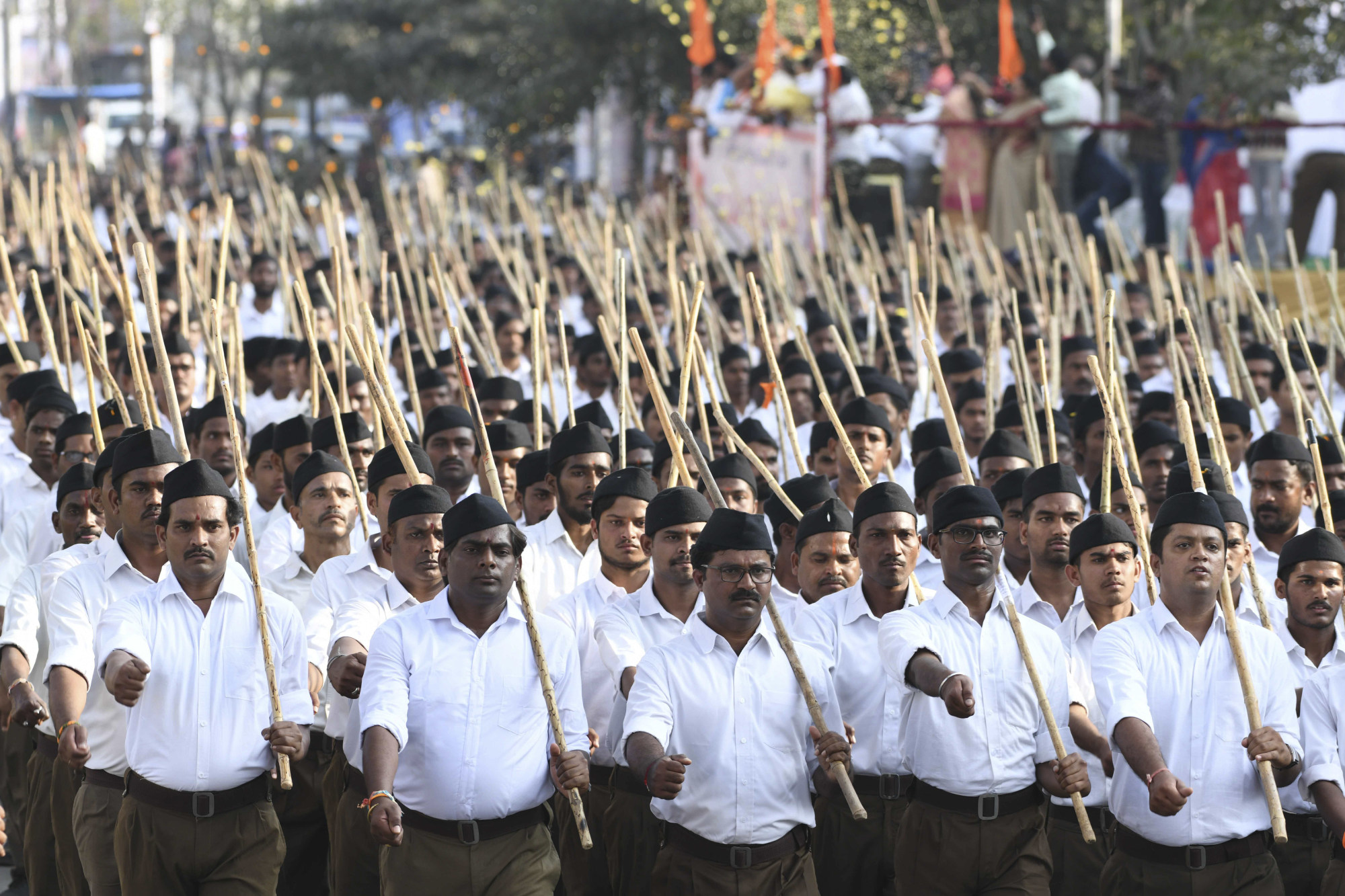Muslims in India continue to be targeted by ‘emboldened’ mobs under Modi 3.0
Publishing date: 02 July 2024
Published in: SCMP
Zakai Wali was at home after enjoying a lavish Eid meal on the evening of June 18 when her neighbours rushed over to show her a video in which her brother, 35-year-old Mohammad Fareed, was being lynched by a mob.
“Initially, I couldn’t comprehend what was going on. Why was my brother beaten so mercilessly? I just rushed to the spot,” Zakai told This Week in Asia.
Fareed was killed just a few weeks after Indian Prime Minister Narendra Modi’s Hindu nationalist Bharatiya Janata Party (BJP) lost its majority in a major electoral shock.
The results, announced in early June, had led to hopes that the violence against Muslims and other minorities that marred Modi’s first two terms would die down. However, the attacks have persisted unabated while both the BJP’s coalition partners and opposition parties have largely remained silent.
Fareed, a resident of Aligarh in Uttar Pradesh, was reportedly lynched by people whom his family said they had known for years.
According to the family, Fareed was waylaid by a Hindu mob near his home as he was returning from work. The viral video of his lynching showed the mob, armed with sticks and iron rods, dragging Fareed through the streets, beating him to death.
“Nobody helped my brother. Instead, people were making videos of his death,” Zakai said. “How long do we [Muslims] have to go through these ordeals? How long will this lawlessness continue in this country?”
Extremism unchecked
Mob killings driven by religious hatred have been on the rise in India since Modi and the BJP came to power in 2014. However, with electoral losses giving them a weaker majority and forcing them to rely more on their coalition partners, many were optimistic that this would mean a reduction in religious extremism.
Despite this, religiously motivated lynchings seem to have risen since Modi took office for a third time. Since June 4, six such cases have already been reported from across India, the most that have ever been reported in a single month.
On June 24, a woman was murdered in Chhattisgarh after she converted to Christianity. A group of Hindu men, including members of her family, are believed to have been behind the killing.
On June 23, a Hindu nationalist mob harassed a Muslim businessman and vandalised his shop in Himachal Pradesh after falsely accusing him of slaughtering a cow. The incident led 12 Muslim men to leave the town.
Two mosques in New Delhi were demolished in late June following a hate campaign by a Hindu nationalist extremist who labelled them “illegal”.
In Aligarh, some onlookers called the police to save Fareed from the unruly mob, but he died before he could be sent to hospital. Six people were later arrested in connection to the case.
The families of those who were arrested have accused Fareed of theft, an allegation denied by his family. Police on Saturday charged Fareed with dacoity, or armed robbery.
“There must be CCTV footage of the incident if my brother was a thief. Why didn’t they [the mob] hand him over to the police if he was caught stealing? Who gave these people the right to kill him?,” Zakai said.
‘Emboldened’
Political analysts say the targeting of minority communities will continue unabated unless the government shows they are serious about putting a stop to it.
Harsh Mander, a human-rights activist at the Centre for Equity Studies, said he had hoped the BJP’s coalition partners would pressure it to end the growing mob lynching culture in the country, “but they aren’t doing it”.
This was a clear signal from the BJP and the Rashtriya Swayamsevak Sangh – a right-wing Hindu nationalist paramilitary organisation closely linked to the BJP – “that their ideological war against India’s Muslims is undiminished”, he added.

Mander said the BJP did not see its poor performance in the general election as being a rebuke against the rise in religious extremism.
“They [the BJP] are defiantly conveying the message that ideologically our juggernaut is fully in place. Symbolically they don’t have a single Muslim in the cabinet, signalling that none of India’s 200 million Muslim citizens will be represented,” Mander said.
According to Apoorvanand, a political commentator and professor at Delhi University who only goes by one name, the BJP’s 10 years in control of the government has created an atmosphere in which those who take part in mob violence do not fear repercussions.
“People did hope that since BJP no longer has an absolute majority, the pressure on minorities would be less, but that has proved to be wrong … the BJP in the past 10 years has emboldened these mobs to lynch people,” Apoorvanand said.
“The most dangerous thing is that the police and administration also don’t want to protect the constitutional rights of people.”
In December, the government did pass a new law, which went into effect on Monday, that adds the death penalty as a potential punishment for mob lynchings.
Asim Ali, a political researcher at the Centre for Policy Research, said attacks on minorities fuelled low- intensity conflict between communities that could be politically beneficial.
